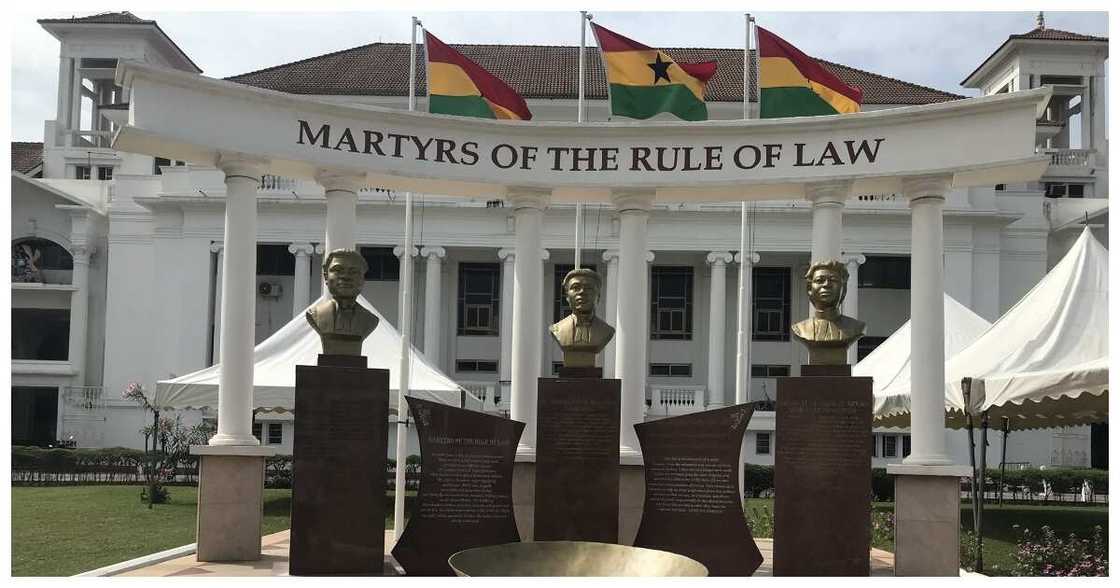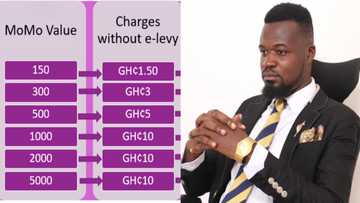E-Levy: Supreme Court Unanimously Dismisses Injunction Application Against Implementation Of Tax
- Supreme Court has unanimously dismissed an application to injunct the implementation of the E-Levy
- The application was filed by three leaders of the Minority who cited the controversial circumstances under which the bill was passed in Parliament
- They also prayed to stop the implementation because the tax would cause serious harm to millions of Ghanaian citizens
PAY ATTENTION: Click “See First” under the “Following” tab to see YEN.com.gh News on your News Feed!
The Supreme Court has thrown out an injunction application filed against the implementation of the controversial Electronic Transfer Levy (E-Levy).
Minority legislators, Haruna Idrissu, Mahama Ayariga and Samuel Okudzeto Ablakwa had filed the suit at the Supreme Court to challenge the circumstances under which the bill was approved by Parliament.

Source: Facebook
According to a report, the 7-0 decision by the bench of the apex court was delivered on Wednesday, May 4, 2022.
Download YEN's news app on Google Play now and stay up-to-date with all major Ghana news
They pleaded with the court to prevent the Ghana Revenue Authority (GRA) from proceeding with the implementation of the 1.5% tax on electronic transactions.
But delivering their judgement, the highest court of the land explained that the state will suffer a greater punishment if the injunction application is granted.
The court presided over by Justice Nene Amegatcher stated that said greater hardship will be caused to the nation if the Ghana Revenue Authority (GRA) is prevented from implementing the new tax policy.
The seven-member panel of judges urged the state and the GRA to keep all records of all the E-Levy deductions up-to-date to enable a refund if it is later determined in the substantive case before it that the law was passed unconstitutionally.
Ghanaians Vent Their Frustration As E-Levy Implementation Starts
Earlier, YEN.com.gh reported that Ghanaians took to social media to vent their frustration over the implementation of the Electronic Transfer Levy Act, 2022 (Act 1075), Ghana's newly introduced 1.5% revenue generation mechanism.
The charges affect all transactions done via Mobile Money (MoMo) payments, bank transfers, merchants' payments, and inward remittances at the time of the transfers.
Despite fierce opposition from a section of the public and the Minority in Parliament, the controversial E-Levy bill was approved and subsequently received presidential assent by President Nana Akufo-Addo on March 31, according to the Ghana News Agency.
E-Levy: GRA Blames Technical Hitches For Wrongful Deductions From Mobile Money Wallets
In related news, the Ghana Revenue Authority (GRA) has blamed reports of wrongful deductions during the first day of the E-Levy implementation on technical hitches.
GRA’s Project Management Unit Head, Isaac Kobina Amoako, has promised that the issue will be thoroughly investigated and the illegal deductions refunded.
“The first fold is that GH¢100 and below, whether on-net or off-net, does not attract E-Levy irrespective, but at the moment, it’s a technical hitch. So it will be ratified automatically once the transaction is detected,” he told Joy FM.
Our manifesto: This is what YEN.com.gh believes in
Source: YEN.com.gh



